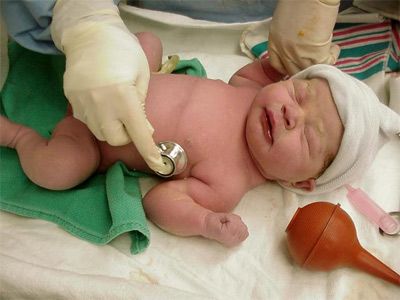How can you tell if you're pregnant? The earliest way to know for sure is through a blood test. Four days after fertilization, the egg begins to produce a hormone called hCG (human chorionic gonadotropin), which can be detected in your blood and, a few days later, in a urine sample. However, some women notice symptoms even before they take a test. Although these aren't conclusive, you should definitely get tested if you experience any of the following:
- Tender breasts: Many women report increased sensitivity, fullness, or heaviness within a few days. By two weeks after conception, your areolas (the pinkish or brown skin surrounding the nipples) may start to enlarge.
- Spotting: Scantier than a period and sometimes mixed with a yellowish discharge, a small amount of bleeding may occur when the developing egg implants itself in your uterine wall.
- Fatigue: Can't keep awake at work? If you feel tired even after a good night's sleep, your body may be going through the changes of early pregnancy.
- Nausea: Don't think of it as "morning sickness," since it can strike at any time of the day or night. It might feel like a slight case of seasickness or a full-fledged stomach virus — or you may not experience it at all.
- Bloating: Many women mistake this early sign of pregnancy for PMS; the tip-off may come when your period doesn't arrive.
- Increased urination: You may need to go to the bathroom more than usual, a symptom that will return in spades during your last trimester.
- Stretching of pelvic ligaments: During the course of a normal pregnancy, the uterus will grow to about 1,000 times its pre-pregnant size (imagine a pear turning into a basketball). Some women feel their pelvic ligaments stretching to make room for this growth to occur.
- Food cravings: If you suddenly find yourself ravenous for citrus fruits, red meat (even if you're a vegetarian), or potato chips, don't assume it's all in your head. Pregnant bodies may crave increased amounts of vitamin C, iron, and salt — among other things — even from the very beginning.
Advertisement
